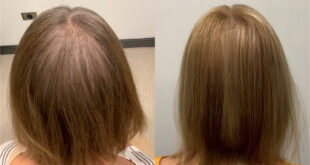From the desk of Tamar N. Rubin, MD allergist/immunologist at Florida Center For Allergy & Asthma Care
 1. FIRE ANTS AND
1. FIRE ANTS AND
INSECT BITES ALLERGY
Although most people are not allergic to insect stings, the majority of insect stings in the United States come from wasps, yellow jackets, hornets and bees. The fire ant, which is related to other stinging insects, now infests more than 260 million acres in the southern United States. The most serious reaction to a fire ant sting is an allergic one. This condition requires immediate medical attention. A ‘normal’ non-allergic reaction to fire ants includes redness and a pustule at the bite’s site.
Symptoms of an allergic reaction may include one or more of the following:
Hives
Tightness in the chest, difficulty in breathing
Hoarse voice or swelling of the tongue or throat
A more severe allergic reaction, or anaphylaxis,
Dizziness or a sharp drop in blood pressure
Fire ant sting allergy is treated in a two-step approach: first an emergency treatment and the second step is preventive treatment that includes seeking treatment of an allergist.
How to avoid fire ant stings?
• Fire ants are most active in the summer and frequently build mounds in fields.
• Insect repellents DO NOT work against them.
• Avoid wearing sandals or walking barefoot in the grass. •Shoes and socks provide protection and time to get away from a fire ant mound if stepped on accidently.
•Yard work and gardening should be done with caution.
Keep prescribed medications handy at all times and follow the instructions if you are stung.
2. CONTACT ALLERGY
A contact allergy is an allergic reaction to the skin when touched by ‘offensive’ chemicals. A common summertime contact allergy is to sunscreen products.
Symptoms:
skin rash
swelling
itching
bumps
blisters
pain
Causes: exposure to components and ingredients that can cause allergic reactions.
Reactions: contact allergies or dermatitis may be only at the location on the skin in contact with the offender or in some cases may spread to all sun exposed areas.
How to have fun under the sun without getting burned?
Be thoughtful when choosing sunscreen and read the labels.
If allergic to one of the ingredients, seek assistance from your allergist in finding a product not containing the element, but that will still protect you from the harmful UV rays.
3. POLLEN ALLERGY
Plants produce pollen grains meant to be moved from one plant to the other of the same kind for fertilization purposes. Although pollen is meant for plants to reproduce, if inhaled can cause allergy/asthma symptoms:
Sneezing
Watery eyes
Runny nose
Nasal congestion
Itchy throat
How to find out if you or your children are allergic to pollen:
See an allergist and get tested (skin testing)
Allergic to pollen: what to do?
Avoid exposure (Fact: most pollens are released into the air during the morning hours)
Monitor pollen and mold counts (Fact: visit our website florida-allergy.com for daily reports)
Wear sunglasses to protect your eyes
Immunotherapy, or ‘allergy shots’ can dramatically reduce allergy symptoms
Avoid gardening and yard work , especially during the morning hours
Change clothing when you come indoor;
wash hands and hair
4. ASTHMA FLARE-UPS
If you suspect that you or your child suffer from asthma, your next step is to seek advice from an allergist. With proper treatment you should be able to participate to most sports and enjoy fireworks, barbecues and bonfires.
Symptoms:
severe shortness of breath
chest tightness
coughing – especially at night,
while exercising, or laughing
wheezing
What to do:
seek medical assistance, proceed to the nearest emergency room
follow up with a specialist
get tested and determine cause
understand triggers and avoid household and environmental exposure at best
Asthma action plan
Adopting an asthma action plan will provide handy instructions on how to proceed in case of an emergency. Besides educating your child and everyone around him to recognize the 3 “zones”:
green (doing well)
yellow (episode at inception, get ready)
red (alert call 9-1-1)
Remember to be S.A.F.E.
Seek immediate assistance
Identify the Allergen that caused the reaction
Follow up with a specialist
Epinephrine carry it at any time
Florida Center For Allergy & Asthma Care
1-877-4-ALLERGY (1.877.4.255.3749)
florida-allergy.com
Palm Beach Gardens
3365 Burns Rd., Suite 206, Palm Beach Gardens, FL 33410 PH. 561-227-1456
F. 561-775-7980 M. pbg@florida-allergy.com
Check Also
The Latest Technology With Hearing Aids
Many modern electronic devices these days come equipped with Bluetooth technology. This feature lets you …
 South Florida Health and Wellness Magazine Health and Wellness Articles
South Florida Health and Wellness Magazine Health and Wellness Articles




